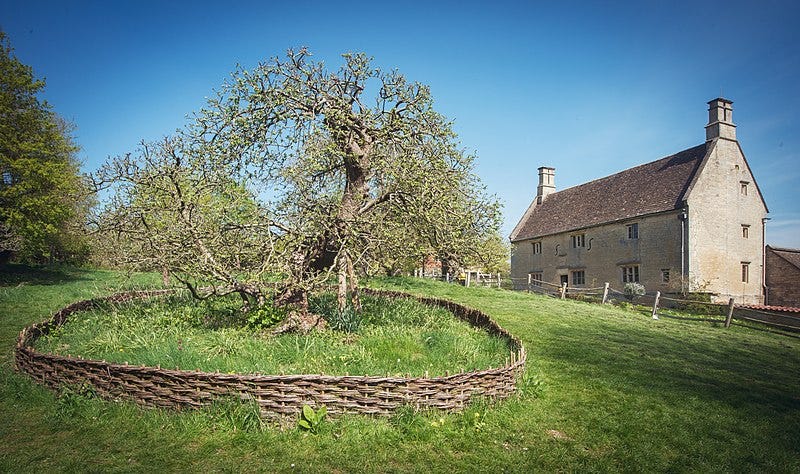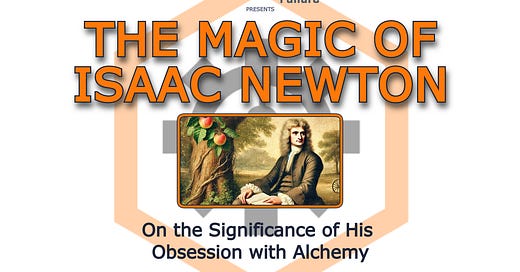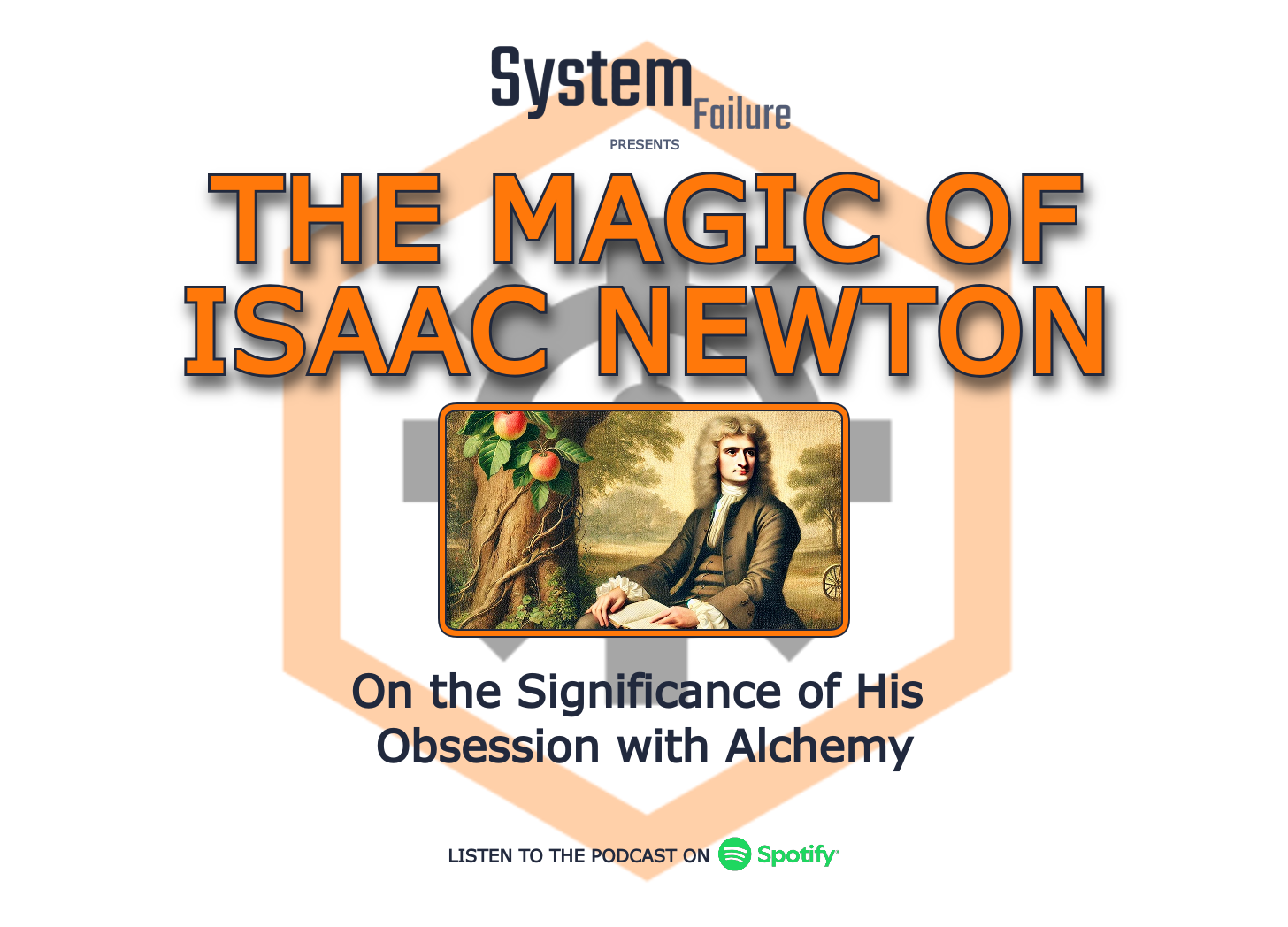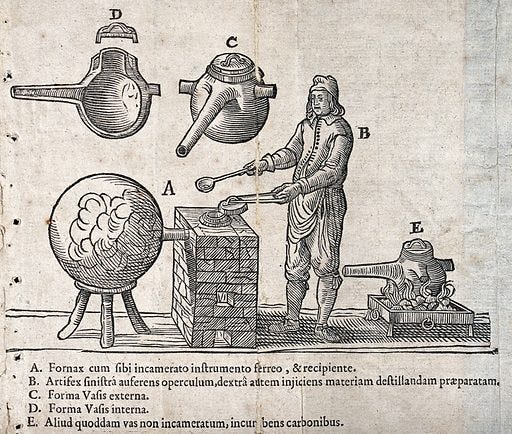Overview
Here at System Failure, we consider it our duty to defend certain taboo ideas. Magic is one of them. The modern scientific view is that our minds are contained within an objective universe, whereas the magical tradition of the Renaissance suggests that the observable universe is actually contained within the mind. Notice that dreams feel solid and vivid, despite being contained within the mind of the dreamer.
Obviously, those in positions of power don’t want the rest of us believing that reality is a product of the mind. They want us waking up and reporting to work, where we make money for them.
That’s why, over the centuries, an empowering magical worldview has been gradually phased out by authority in favor of the familiar materialist conception of reality. But today, science is coming full circle. The Placebo effect and the Double-slit experiment prove that something is fundamentally flawed with the scientific materialism espoused by our authorities. Now the entire discipline of science is suspended in a state of unrecognized tension. Scientists can’t exactly hold a press conference and affirm the illusory nature of reality; who would report to a job to toil if they believed it was an illusion?
It’s high time we addressed these phenomenon directly. That’s where System Failure comes in. Some of the biggest guns in scientific history took magic dead seriously; Sir Isaac Newton being chief among them and the focus of this essay. If magic was good enough for Newton, then perhaps it’s worth a second look on our part…
Introduction
Sir Isaac Newton is the most important figure in the history of science, and he was also a devoted magician. This fact highlights how science was derived from magic. The fact that this fact is not more widely-known illustrates how we project the modern, out-of-fashion status of magic backward onto history.
Sir Isaac Newton
Isaac Newton was born on Christmas Day in 1642, just 4 days after Galileo died in Florence. Newton was an odd guy, to say the least; he was most likely somewhere on the autism spectrum. He kept to himself and had few friends. And he remained a virgin until his dying day in emulation of Jesus Christ, who was also supposed to have been born on December the 25th.
In addition to these foibles, Newton was also a genius. No single person is more responsible for laying the foundations of modern science. In 1687 he published the “Principia” (Philosophiae Naturalis Principia Mathematica) in which he laid out his Three Laws of Motion, which remain the core of physics to this day.
Watching an apple fall from a tree inspired Newton to formalize the mathematical equation for gravity, which is also in the Principia. A descendant of that exact tree still stands at Woolsthorpe Manor, Newton’s old home in Lincolnshire, England.

Alchemy
Without Newton, there could be no Einstein. That’s what makes it so fascinating that the man was into magic.
He didn’t just dabble. Newton was obsessed with alchemy for 30 years of his life. Many scientists of the Royal Society were also secretly alchemists, which they called "chymistry" in those days. That word betrays the fact that modern chemistry has its roots in alchemy.
Alchemical experiments are ultimately meant to reveal something about the nature of the observing alchemist, who allegorized the spiritual transition they hoped to undertake as the transmutation of lead into gold.
Chemistry, on the other hand, confines itself only to discoveries about the properties of the chemicals involved. Like all modern sciences, it strives for objectivity by detaching the observer from the experiment as much as possible.
That fundamental difference neatly encapsulates the magic/science dichotomy. The magical arts affirm that the universe we observe is actually contained within our minds. Science, on the other hand, still insists that our minds are contained within an objective universe.
Science gradually jettisoned the magical insight in the years after Newton’s death in 1727. It was already embarrassing enough in his day that he kept his work secret.
But in our own time, science is coming up against the limits of its ideology. The Placebo Effect and the Double-slit experiments are proving beyond a shadow of a doubt that our reality is at least partially generated by observation. Renaissance magicians—who regarded reality as a lucid dreamer regarding a dream—may turn out to have been right all along.
Conclusion
Isaac Newton is the most important person in the history of modern science, but his surprising devotion to magic shows just how closely intertwined the histories of science and magic actually are. It also reveals the contradiction lurking at the core of modern science.
Further Material
[Newton] made many experiments, mainly in alchemy, “the transmuting of metals being his chief design”; but also he was interested in the “elixir of life” and the “philosopher's stone.” He continued his alchemist studies from 1661 to 1692, and even while writing the Principia; left unpublished manuscripts on alchemy totaling 100,000 words or more…Boyle and other members of the Royal Society were feverishly engaged in the same quest for manufacturing gold. Newton's aim was not clearly commercial; he never showed any eagerness for material gains; probably he was seeking some law or process by which the elements could be interpreted as transmutable variations of one basic substance. We cannot be sure that he was wrong.
Will & Ariel Durant, “The Age of Louis XIV”, 1963, page 531






